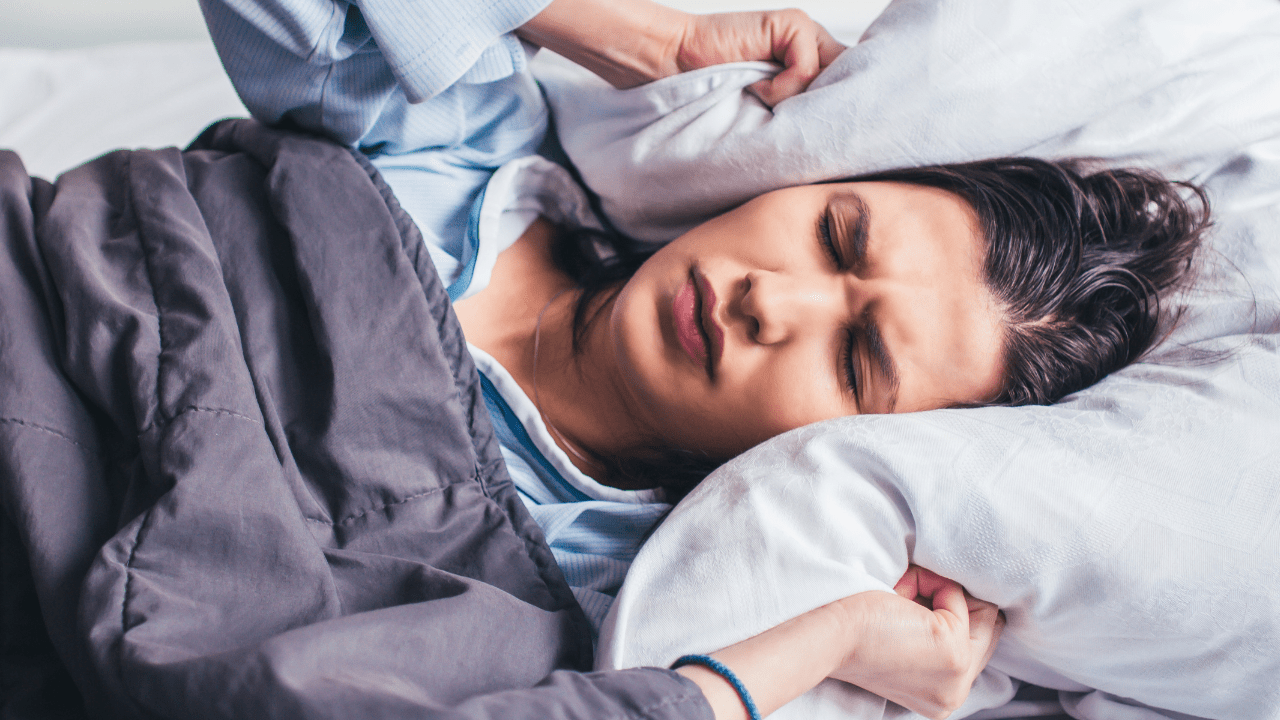Are you noticing your sleep is suffering during the transition into perimenopause and menopause? Here are some essential tips for a better night’s sleep.
If you’re going through perimenopause or menopause, many women experience sleep problems. Either they can’t fall asleep or they wake up from sleep and can’t get back to sleep at, say, three or four in the morning. And this is a real bummer.

So how does this happen? Hormone decline is the big culprit. During perimenopause, your ovaries begin producing lesser amounts of your key hormones. This includes estrogen, progesterone, and testosterone. As these hormone levels fall, symptoms of menopause increase like insomnia, night sweats, which might be also contributing to keeping you. Sleep disturbances during the menopause transition are often related to hot flashes and night sweats.
So what can you do? Make sure you have a sleep routine, same hour each night. Another great tip is to eat earlier so you don’t feel full when you’re going to sleep. Create a dark space with blackout curtains and avoid having the stimulating lights and the computer blue light that really affects the melatonin production. No heavy conversations is another rule I have in my household before sleep that just gets you into your head.

To follow, for good sleep, it is important to balance your hormones – estrogen and progesterone, cortisol, melatonin, even testosterone. Exercise and a healthy diet is super important. If you’re not exercising and you’re not tired, you’re not going to sleep well. If you’re eating foods that are affecting your health that are sugary, they’re also going to affect your sleep. You can also try chamomile tea to relax as you’re going into your night routine.









